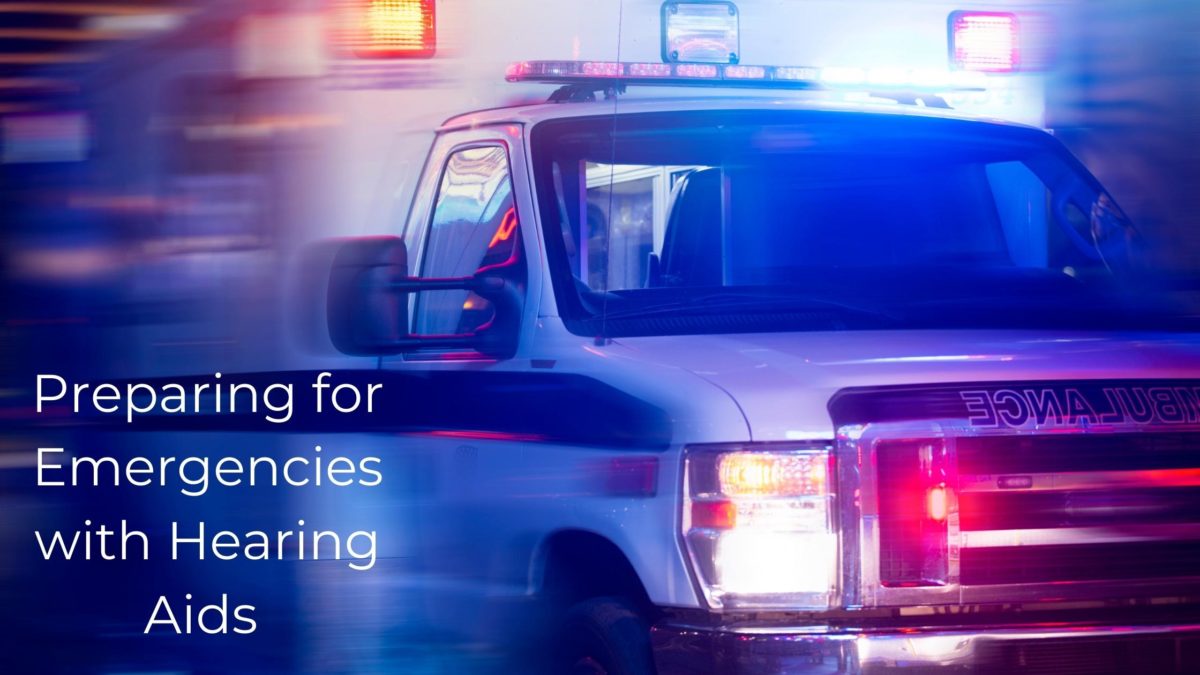Having an action plan in the case of an emergency is critical. Taking the time to prepare for emergencies can best help you navigate these situations and remain as safe as possible. This can present unique challenges for people with hearing loss who experience a reduced capacity to detect and process sound. Typically, emergency conditions are announced through broadcasting platforms like television, radio, or cell phone alerts. This can be easier to miss for people with hearing loss so it is important to prioritize hearing needs so that you can be prepared for emergencies. A few ways you can do this include the following:
- Sign up for emergency alerts. Various types of emergencies are often communicated via television, radio, and text/calls directly to your phone. Inclement weather conditions are an example that uses these audio-based messaging systems to communicate incoming earthquakes, fires, tornadoes, etc. But for people with hearing loss, these audio warnings can be challenging to catch. This is especially true if these warnings are delivered while people are not wearing their hearing aid devices (during sleep, in the shower, etc) or if they are in a different room.
A useful way to avoid this and to have better access to emergency alerts
is by signing up for visual warning systems. This includes closed captions
on your TV and alert systems that use flashing lights to signal an
emergency. It is important to identify the alternative emergency alerts
that are used in your area and sign-up for those messaging systems. Be
sure that you receive emergency alerts on your phone and you’ve
activated vibrate settings to ensure you don’t miss it.
- Have an emergency kit. Emergency kits are a necessary and helpful resource that you can create beforehand, preventing you from scrambling to find essential items during an emergency. Key emergency kit items are food, first aid supplies, clothes in case of inclement weather, and medications. In addition to the necessary items, there are also additional supplies that could be beneficial for people with hearing loss. This includes:
- hearing aid-related items: these devices are critical for spatial awareness, safety, and communication. Be sure to have extra batteries to prevent your hearing aid from dying, a cleaning kit, dehumidifier, and any other accessories you use or your hearing aid. These items should be stored in a sealed waterproof container.
- Communication items: pen, paper, and pre-written lists of any medications or detailed information that you may need to share.
- Visual aids: it is important to enhance what you can see as much as possible. Flashlights and batteries are useful ways to do this
Store these items together in a kit that you can easily access during an emergency. You may have a limited amount of time to do this so you want to make sure that you easily remember where your emergency kit is and that it is easy to quickly grab.
- Establish a communications plan. A communications plan during an emergency is a useful way to navigate your way through urgent conditions. You should identify your emergency contacts, at least 2 people, who you can contact for support. Ideally, they live in different places than you and are not dealing with the same emergency conditions, allowing them to be reachable and available. They should be aware of your hearing loss and what your hearing needs are, helping you reach safety.
- Prepare hearing aids. One of the most essential items for people with hearing loss, especially during an emergency, is hearing aids. These devices maximize hearing capacity, allowing people to hear more clearly and with greater ease. This is critical for hearing and communicating which are needed sensory tools during an emergency. So it is incredibly important to have hearing aids that are working optimally and in great condition. A few tips to ensure your hearing aids are prepared for emergencies include:
- regularly clean your hearing aids. You should have a maintenance routine that you practice nightly which includes thoroughly cleaning your device, using a dehumidifier to remove moisture, and storing it somewhere cool.
- Have your hearing aids been inspected routinely? This helps identify any potential issues and ensures that your device is working properly.
- Keep your hearing aid kit stocked with the cleaning supplies and accessories you use to best maintain your device.
Also, make sure you are always wearing your hearing aids during waking hours so that you can catch emergency signals. Taking the time to plan for emergencies ensures that your hearing needs are met which helps you be as prepared as possible.

